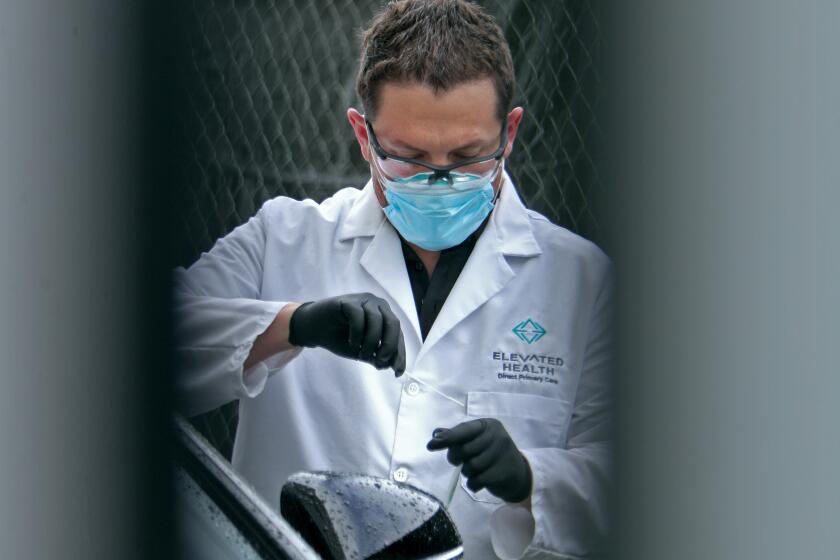Laguna doctor sees promise in anti-malaria medication to treat serious coronavirus cases; others aren’t sure
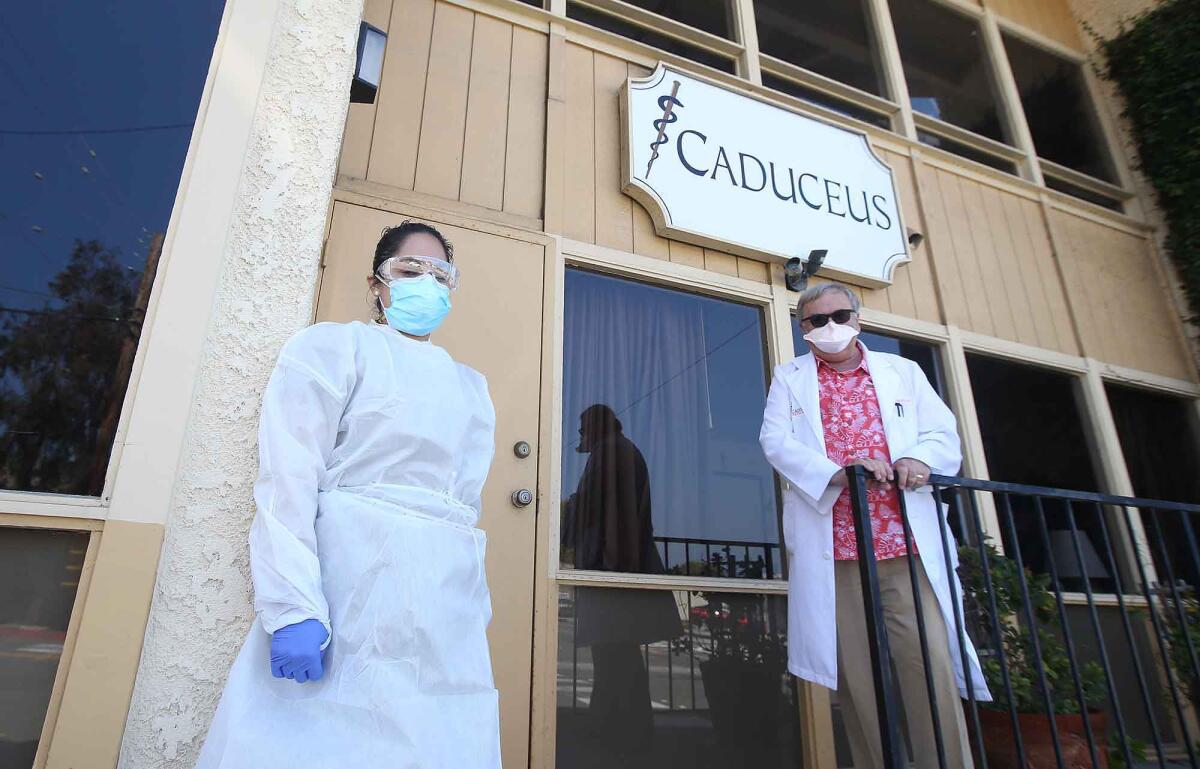
- Share via
Before Gov. Gavin Newsom’s stay-at-home order last month called for Californians to avoid leaving their homes except for essential business as the COVID-19 coronavirus upended the country, Dr. Gregg DeNicola heard through the physicians’ grapevine that laboratories were going to be offering coronavirus tests to private doctors.
“Through some phone calls and begging, [Caduceus Medical Group] ... got several hundred right away and divided them among the main three offices in Yorba Linda, Orange and Laguna Beach,” said DeNicola, a family practice physician whose office is at 333 Thalia St. in Laguna. “It made sense to start testing outside. People who were sick coming into our office would not be ideal.”
DeNicola set up cones in the parking lot and the city opened five parking spots at the corner of Thalia and Glenneyre streets for drive-up testing. Of the 200 to 300 tests DeNicola has done since March 10, 22 coronavirus cases are being treated.
Only one of his patients has been hospitalized so far, and DeNicola said other patients with more severe cases have responded favorably to his use of hydroxychloroquine, a drug used to treat malaria, lupus and arthritis. He said he was previously giving Z-Paks — a five-day course of azithromycin, an antibiotic approved for treatment of respiratory, skin and other bacterial infections — and zinc, but he felt they weren’t helping enough.
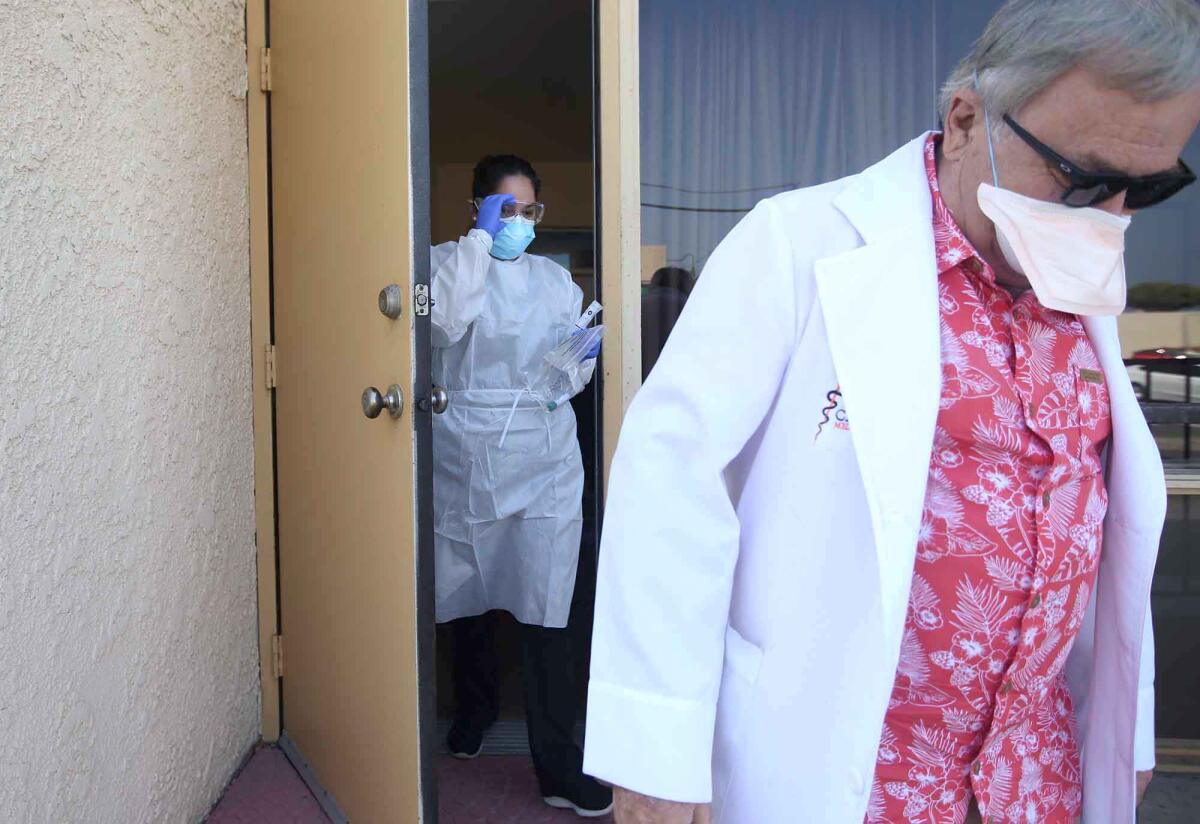
To determine whether a person should be tested, he or she must first go through a doctor visit via video. When a patient tests positive, the medical group takes over the person’s care, DeNicola said. As a group, Caduceus has tested 800 to 900 people across Orange County, he said.
A small percentage of patients have experienced severe pneumonia, he said.
DeNicola nicknamed COVID-19, the disease caused by the coronavirus, the “lung eater.”
“It totally floods your lungs, and these poor patients can’t get the air in their lungs and they feel they’re drowning. We need to stop it before it gets to that point,” DeNicola said. “We tried Z-Paks and zinc because some literature suggested it, but it was all anecdotal. No one’s done the studies.”
He said he didn’t see enough positive effects from the Z-Paks, so he looked at data from the SARS coronavirus outbreak in 2003. Though Z-Paks were working in many of those cases, DeNicola saw reports of some researchers talking about using hydroxychloroquine to treat cases because it appeared to have effects on cell membranes that prevent viruses from entering the cell.
Using it to treat the COVID-19 virus — also known as SARS-CoV-2 — was not “totally out of kilter since it worked on the first SARS,” DeNicola said.
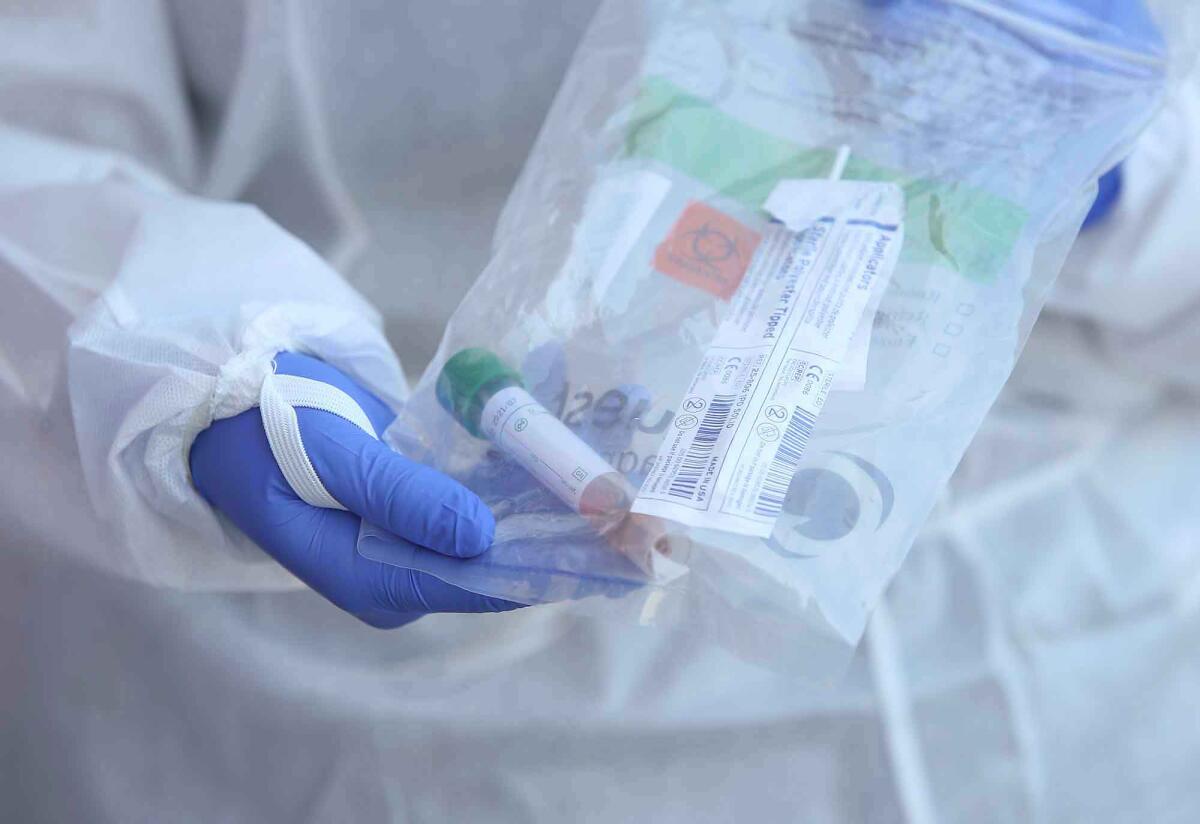
Currently, there is no established treatment for the COVID-19 virus.
Dr. Shruti Gohil, a professor of infectious diseases at UC Irvine, said hydroxychloroquine is worth studying but cautioned that there isn’t enough data yet to show its effectiveness.
The university’s medical group is participating in a clinical trial of the antiviral drug remdesivir as a potential treatment.
“I don’t think it [hydroxychloroquine] is a bad idea at all,” Gohil said. “I think we should look at it. But it does really have to be studied properly before it’s handed out like candy to patients. We have to be more careful.”
Gohil said she might use it “in my patients who are not doing well,” particularly elderly and other patients considered at high risk of the disease.
The risk is the medication can cause cardiac arrhythmia, Gohil said.
Jerika Lam, a Chapman University associate professor of pharmacy and an expert on viral infections, said “there is no strong, reliable scientific evidence to support hydroxychloriquine for the treatment against SARS-CoV-2. The use of hydroxychloroquine against COVID-19 stemmed from a small, open-labeled, non-randomized French study.”
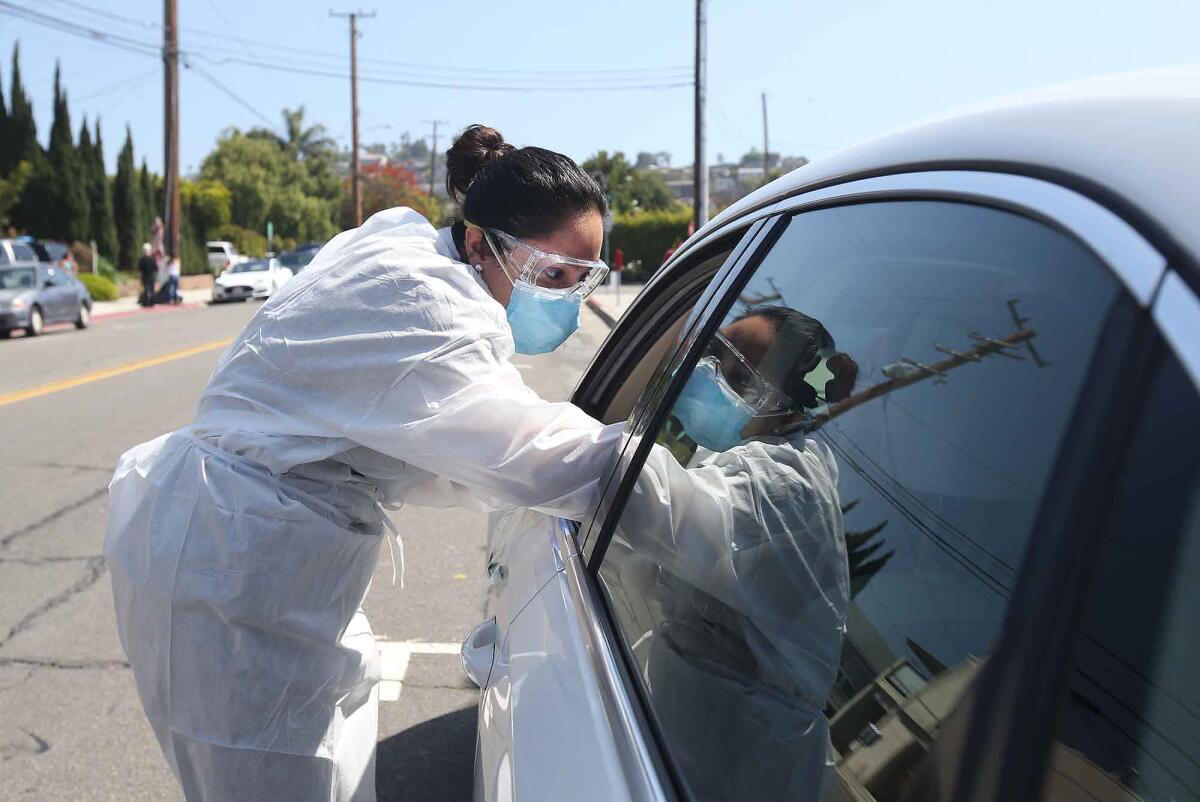
The study involved 26 patients who were given hydroxychloriquine and azithromycin, Lam said.
“Of the 26 patients, six dropped out from the study, three transferred to the [intensive care unit], one patient died, one patient stopped the treatment because of severe nausea and one left the hospital,” Lam said.
Researchers concluded the study was too small and that larger randomized clinical trials were needed to evaluate the drug’s effects, Lam said.
DeNicola said he got hold of the medicine from pharmacies for use on coronavirus patients with significant symptoms and that his office is keeping track of the data. Milder cases receive Z-Paks or zinc.
Dr. Matthew Abinante, 36, performs drive-up testing for the novel coronavirus by appointment near his Huntington Beach office’s loading dock, eight floors down from where he runs a small private practice in a medical tower off Beach Boulevard.
DeNicola said he has seen demand for coronavirus tests drop lately as more people stay home and practice social distancing, which he said also is helping to curb the spread of other illnesses such as colds and strep throat.
“We were doing 50 to 75 [tests] a day,” he said. Last week, “[on Tuesday] we did 25 and Wednesday, we probably did 20.”
He said all of his cases in which hydroxychloroquine was used showed improvement, but he acknowledged his number of patients is small.
“I’m kind of a believer in it, but I totally acknowledge I’m in a limited number of patients,” he said. “Some doctors are against it, but all you really can do is go with what your cases are.”
City News Service contributed to this report.
